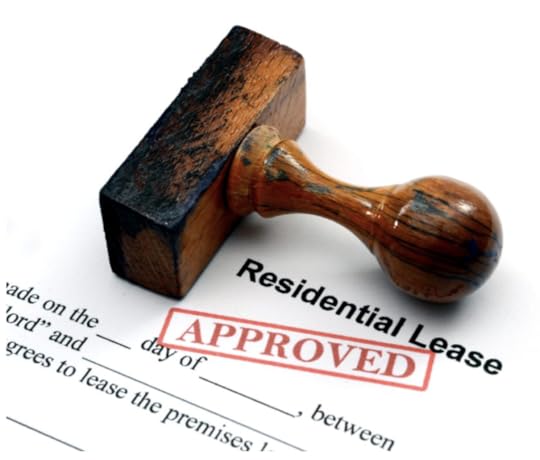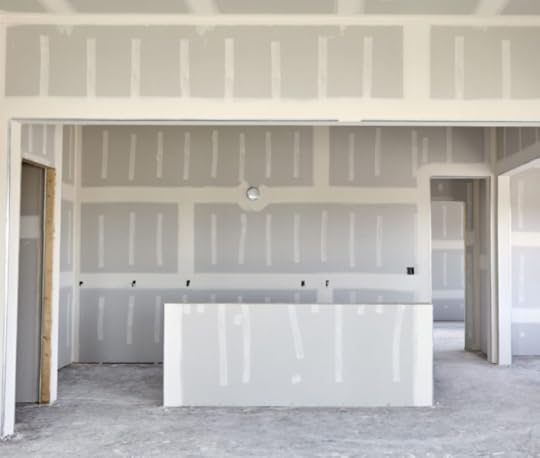Gea Elika's Blog, page 118
May 29, 2018
How to Win a Bidding War with a “Love Letter”

It’s often said that the pen is mightier than the sword, but that can also hold true against the almighty dollar. Bidding wars are very much a fact of life for real estate buyers in NYC when a particular segment of the market is in high demand. If you find yourself locked in one with another buyer for your dream apartment, then a personal letter could give you the edge that’s needed. Don’t discount the difference this can make. According to The Wall Street Journal, sending a personal letter along with your offer to a seller during a bidding war can boost your chances of being accepted by 52.2%. Read on to see how this can be and how to write one yourself.

How can a love letter help you win a bidding war?
Money certainly talks, but sellers can also be won over by something a little less tangible. That something is a heartfelt and sincere letter showing your appreciation and interest in the home. For many people, selling a home that they’ve lived in for years and built an emotional attachment to is far from easy. When they’re trying to decide between two competing and similar offers a love letter could be enough to persuade them, even if it means accepting less money.
That said, no amount of purple prose will overcome shaky finances. For some sellers, it may not be likeability that attracts them to a buyer but confidence that they can close the deal. As such, you shouldn’t stop at assuring the seller that the home will be cared for but also signal that this is a serious offer.
When it comes to winning a bidding war in NYC, you should be pulling no punches and getting as much in your favor as possible. So then, how should you compose a love letter?
What to include
1. Introduce yourself and tell your story
The love letter is a chance to introduce yourself and put a human face on your offer. When a seller is facing two or more very similar offers, it’s that small human touch to an offer that can sway their choice. Just make sure to keep it concise and share details specifically relating to the deal. For instance, if you’re a recent graduate and this is your first home purchase mention your credentials and dreams for the future.
Demonstrating that you have a bright and upcoming future ahead of you could be enough to make them overlook slightly higher offers. The key is to try and make a connection with the seller, which brings us to.
2. Find Common ground
Sometimes whether an offer gets accepted or not comes down to having common ground. Try to gather whatever information you can on the seller – without invading their privacy of course. When viewing the apartment, look out for clues that can give you an insight into their lives and personalities.
If there is a bookshelf note what the titles are. If you see diplomas from the same university you attended, you’ll want to mention it. Finding a common interest such as art, literature, education or upbringing can help put a seller at ease. It may even encourage them to meet you face to face, something which can lead to a deal going more quickly and smoothly.
3. Show your commitment
Making an offer isn’t just about throwing a number out, it’s about showing your ability and desire to close the deal. You can communicate this by mentioning how long you’ve been apartment hunting and that you’re knowledgeable about the market. Also, suggest that your buyer’s broker and real estate attorney are ready to move forward with all haste and have plenty of experience with closing deals fast. If it’s a co-op, then mention that you’ll do whatever it takes to pass the co-op board package.
You can also demonstrate the seriousness of your offer by mentioning why you feel this apartment is right for you. This can be as simple as specifying any details about the apartment that made an impression on you, such as how its situated in the perfect neighborhood, how beautiful the view is or how you love the renovations they’ve done.
Love letter sample
Dear Mr. [Seller(s) Name]
Thank you for the opportunity last Saturday to view your Chelsea property. It was lovely to meet you and your family and get to know your wonderful home. My wife and I have been searching for our first home to start our growing family, and we believe yours is just the one we’ve been looking for.
Along with our offer, we thought it would be nice to include this short letter, so you could get to know us better.
My wife Janis and I both grew up in the city, and our parents live close by. It’s important that we find a home close to our family as we have our first daughter due in August and want her to be close to her grandparents. I graduated last year from Harvard University as a Business Consultant and was fortunate to immediately find a position with XYZ Consultants right here in Chelsea. For the past year, we’ve been looking for a home that was both close to my work and was the right size for our new family. When we saw your home on the market, we just knew we had to see it.
The convenience of the location isn’t the only thing that caught our eyes. On first walking in we fell in love with the place. We both love the attention to detail you’ve done with the kitchen and the charming light fixtures in the living room, allow me to say also you have an excellent taste in furniture selection.
I have already gone through the specifics of the property with my broker, and we are ready to move forward with all haste. As you can see from my offer, all my financials are in order for a quick and smooth sale.
The post How to Win a Bidding War with a “Love Letter” appeared first on | ELIKA Real Estate.
May 27, 2018
A Landlord’s Responsibilities

New York City is known to have one of the nation’s more favorable laws towards tenants in the country. If you are considering making a real estate investment in the city, it behooves you to understand the responsibilities you are undertaking. There are state laws that you must also comply with, and unique city rules for rent control and rent stabilization apartments.

Know the anti-discrimination laws
The Federal Fair Housing Act, along with the New York State Human Rights Law and the New York City Human Rights Law, prohibits discrimination in housing. The Federal law makes it illegal to deny someone a rental by race, family status, color, national origin, religion, disability, or sex. New York State adds creed, age, sexual orientation, and military status to the list. While New York City also protects those from being discriminated against by citizenship status, gender identity, lawful occupation and lawful sources of income (e.g., public assistance, social security, supplemental security income, and unemployment benefits),
A landlord cannot deny someone the rental opportunity based on those mentioned above. You also cannot make the rental terms or conditions different. Regarding your advertising, you need to ensure it is not discriminatory. Of course, any harassing, threatening, or intimidating behavior to prevent someone from renting is strictly prohibited.
If the authorities find you have committed discrimination, the law requires you to take specific remedial action. This includes changing your practices and paying monetary damages (which may include attorney fees), as well as civil fines and penalties.
You can legally reject rental applicants for certain things. These include bad credit, bad references and poor rental history (e.g., late rent payments).
Dealing with problems
If you have a tenant that is not following the terms of his/her lease, including the non-payment of rent, there are specific actions you can take, but you are forbidden from doing certain things. You must give the tenant three days to pay back rent or move. Should he/she not do either, the landlord can start eviction proceedings. Laws are regulating how and when you may terminate a tenancy. This is an arduous process, however. While this is ongoing, you cannot try to force him/her to leave, such as shutting off the electricity or changing the locks.
You should spell out the terms of the rental lease agreement. This includes the amount of the monthly rent, when it is due, how payment is made how much notice you have to give a tenant before raising the rent, fees for a returned check, and what happens if your tenant does not pay rent on time (e.g., late fees and eviction). You need to make sure you comply with federal, state, and city laws. For instance, you have to provide your tenant at least one month’s notice before terminating the tenancy.
A landlord cannot raise the rent in a discriminatory manner (e.g., only for individual races or religions). It is also important to note that you cannot increase the rent to retaliate for your tenant for taking legal action, such as complaining to the authorities about the lack of heat.
Returning security deposits
This is a significant area of contention. A tenant hands over the security deposit before moving in to provide you with a degree of protection should they leave your property in disarray or skip paying rent. The security deposit covers damage beyond normal wear and tear.
Landlords have to disclose the name and address of the bank where the deposit is being held. In buildings with at least six units, the landlord is required to pay interest (either annually through subtraction of rent payment or at the end of the tenancy), although you also have the right to charge a yearly 1% administrative fee.
There is no legal statute limiting the amount of the security deposit. Traditionally, a tenant pays the first and last month before moving in. Under the law, it must get returned after a “reasonable” period after the tenant has returned the keys and left. This is open to interpretation, but it has typically meant 21 to 45 days.
You can try to avoid problems by photographing the apartment before the tenant moving in. Before moving out, you may wish to provide the tenant a list of your expectations. If you feel there is an issue when he/she moves out, once again you should take pictures before starting the repair work.
Make it livable
Landlords have a legal requirement to make sure the property is habitable. These are referred to as the implied warranty of habitability. Your tenant has the right to a livable, safe, and clean apartment. This means providing adequate heat, hot water, and getting rid of bug infestations. There are also requirements regarding lead paint, smoke and carbon monoxide detectors, locks, and window bars. Landlords also must protect from “reasonably predictable criminal harm.” If your tenant fell victim and was due to a criminal’s entry into the building because locks are not fixed, you could be liable for damages.
If you are not living up to your part, tenants can take several actions. These include withholding rent payments, or, if they repair it themselves, deducting this amount for rent.
You cannot force your tenant to give up this right, and even if you put this is in the lease, a court will side with your tenant.
Make your disclosures
There are disclosures a landlord is legally required to fulfill. Aside from those relating to security deposits, there is a federal law about lead-based paint and other hazards. If you are performing renovations on a building constructed before 1978, regulations require that you provide tenants with lead hazard information within 60 days of starting the work.
Rent control/stabilization
There are many units covered by rent control or rent stabilization. These have a set of regulations that a landlord must follow. A rent control building has limits on the amount of rent the owner can charge, along with certain restrictions on evictions. In a rent stabilization building, landlords are also limited to the rental amount, along with rules governing required services and terminating a tenancy. You can visit the New York City Division of Housing and Community Renewal’s Office of Rent Administration and the New York City’s Rent Guidelines Board for the rules that apply.
The post A Landlord’s Responsibilities appeared first on | ELIKA Real Estate.
May 26, 2018
The Cover Letter for the Co-op Board Package: How to Write One

So after a lot of searching you’ve finally found the perfect NYC co-op. You’ve successfully negotiated a price, signed the contract and will soon be facing the infamous co-op board interview. However, there is still the co-op board package to put together and to ensure you get board approval it has to be near perfect. One important part of the board package, which sometimes gets overlooked, is the cover letter. Here’s what you need to know about it and why it’s important.

What is a cover letter and why do you need it?
The co-op board application process is a bit invasive, to say the least. Your entire financial life will be laid bare before people that will be your neighbors for years to come. Few people are comfortable with this, but there’s no way around it. Besides being invasive, the process can also feel a bit dehumanizing as your life is reduced to numbers on a tax return.
But the co-op board isn’t just concerned with your financials. They also want to know if you’ll make a good neighbor. This is where a good cover letter can make a difference. It’s a chance to humanize your application and show that you’re more than just a number. Remember, the board members are volunteers who won’t necessarily have the time or expertise to interpret complex financial statements. That’s usually left to the buildings attorneys who then give the board their opinion. What the board will be more interested in is your cover letter.
How to write a cover letter
Follow these pointers, and you should have the perfect cover letter good to go in no time.
1. Keep it clear, short and simple
Save the technical jargon for the attorneys; your cover letter should be all about putting a face on your board package. There’s no need to go over-the-top with how you present it. It should be printed on regular copy paper in Times New Roman or Calibri and be no more than 3-4 paragraphs long.
2. Strike the tone
It’s essential that you come across the right way and knowing a bit about the board will help with that. Your buyer’s agent may have worked with them before or know people that have. Use what information you can gather to present yourself as their model neighbor but don’t take that as an excuse to present yourself falsely.
Make yourself shine by mentioning why you believe you’d make a great neighbor, that you’re in it for the long-haul and have all the financial requirements. It’s alright to give the board praise and kiss up a little but only so long as it’s genuine. For instance, if there’s something about the architecture that you love you should definitely mention it.
3. Make a connection where you can
Since the board is legally restricted from asking you certain questions, this is a chance to fill in the blanks. This can be something as simple as saying,
‘My name is John Smith, and I am a proud graduate of the University of California in Los Angeles where I majored in Business Law. Recently, my wife gave birth to our first child who I want to see grow up close to my parents who reside in Brooklyn. My wife and I are committed to making New York our home and starting the next chapter in our lives. We look forward to meeting you and hopefully becoming part of the community. Thank for your time in considering our application. If there is any additional information, you require we are happy to cooperate.
Final thoughts
A cover letter does not call for excessive detail. All it needs to do is put a good face on your application. Make sure to run it by your broker before submitting. They can even help you with writing it up. The cover letter is just one of the many things a co-op board package requires. It may seem like a small part of it, but it still deserves the right attention.
The post The Cover Letter for the Co-op Board Package: How to Write One appeared first on | ELIKA Real Estate.
May 25, 2018
FSBO or Real Estate Agent?

Selling your home without the assistance of a real estate agent may seem tempting but this is a decision that needs to be weighed carefully. Saving a bundle on commissions certainly sounds good but the FSBO route comes with a lot of legwork. According to the 2017 NAR report, FSBO’s only accounted for 8% of real estate sales in 2016 and their average sale price was well below that for agent-assisted sales. If you’re still considering going for FSBO here’s what you need to know.

What does FSBO mean?
For sale by owner (FSBO) is when a homeowner lists their home for sale without the assistance of a professional real estate agent. It will mean cutting out the seller’s commission but also being responsible for everything from start to finish. You’ll need to come up with your own price, handle the marketing, the staging, pre-screening buyer’s, negotiations, paperwork, and closing with only your wits to guide you.
When you should choose FSBO
Whether FSBO is the right choice or not depends on the person. If you tick all the boxes below then it could be the one for you.
1. You want to avoid paying a listing agent commission
The main reason people choose FSBO is to avoid paying a commission which, in NYC, averages 5-6% of the purchase price. Just remember that you’ll still need to hire a real estate attorney to close the deal as NY State is one of several states that makes this a legal requirement.
2. You have the time and motivation to sell for top dollar
FSBO requires a lot of time and motivation if it’s to pay off. Just putting your listing online won’t be enough. You’ll need to do home staging, open houses’, and arrange visits by prospective buyers. Without enough motivation to sell, FSBO will only end up being a waste of time and money.
3. You’re an expert on your home and neighborhood
Another reason people choose FSBO is that they don’t trust an agent to know their home as well as they do. If you’ve been living there for many years and know everything about it that can be a big selling point. The same goes for knowing your neighborhood just as well.
When you should choose a real estate agent
The reason why 92% of sellers hire an agent can be summed up in one word, experience. Here’s when to choose a listing agent.
1. You don’t understand pricing strategy
The reason why most homes don’t sell is due to overpricing. Without a thorough knowledge of pricing strategy, this is very hard to avoid. A good agent will know how to price a home correctly based on its condition and the current market. They know what buyers are looking for and what kind of price will grab the attention of most of them.
2. You don’t have the time or recourses to market properly
Successful marketing isn’t just about putting enough time in, it’s about having the right recourses and contacts at your disposal. An agent will have access to local MLS, name recognition, connections with other agents and relationships with all the right people. All good reasons why agent-assisted sales sell much faster and for a better price than FSBO.
3. You’re not good with paperwork or negotiating
An experienced agent knows how to spot serious buyers and help guide them towards the dotted line on the contract of sale. They know the entire sales process and current market which puts them in a strong position for negotiating and making counter-offers. Also, they know the ins-and-outs of all the required paperwork for a sale. Mistakes or forgotten paperwork could torpedo a whole deal which makes an agents expertise near a close invaluable.
Summary
With so much information and services available online now it’s easy to think you can go without a listing agent when selling your home. You certainly can. But it comes with a lot of tradeoffs, responsibility, and risks. Even today, most people still chose to hire an agent, the statistics alone on FSBO’s bear this out.
The post FSBO or Real Estate Agent? appeared first on | ELIKA Real Estate.
May 24, 2018
What is a Proof of Funds Letter and Why do Home Buyer’s Need It

When you are hunting for a home in NYC, it helps to be prepared. Fail to move fast enough, and you could lose out to another buyer that is organized and has everything submitted. One crucial step every buyer should include with their offer is what’s called a proof of funds letter. If you’re new to the real estate game here’s what you need to know about this document and why it’s so important.

What is a proof of funds letter in real estate?
Proof of funds letter is a document which certifies that a buyer has enough funds to cover the transaction. Sellers are very unlikely to take an offer seriously if it’s not included in the offer. Otherwise, how can they know that the buyer can close on the purchase?
Even if you’re receiving financing for the purchase, you’ll still be expected to provide one. After all, there’s still the matter of the down payment (usually 20% of the purchase price) and the closing costs (an additional 3-4% of the purchase price).
What about my pre-approval letter, doesn’t that count?
Actually, no. A pre-approval letter is only a lenders commitment to provide the buyer with a home loan. These are two separate documents and should not be confused with one another. The proof of funds letter will still be needed to show that you have the funds to close the sale and where you’re holding the funds.
What counts as proof of funds?
Most buyer’s get their proof of funds letter from their financial institution where the money is being kept. This is typically from a bank but can also be an open line of credit or money market account where funds can be withdrawn quickly. It usually comes on an official document and is signed by a senior representative or officer of the bank. It does not have to disclose the exact amount the buyer has in the bank. All that is needed is for it to disclose that the funds are more than the purchase price or deposit/closing costs including post-closing liquidity when financing.
A proof of funds letter can also be a simple bank statement or investment account statement. If you go this route know that it’s perfectly acceptable to ink out the account numbers for your own privacy.
Must I include anything else with the proof of funds letter?
That depends, are you buying a co-op or condo? If it’s a condo purchase, then the listing agent may be fine with just the offer price and proof of funds for an all-cash offer. But if it’s a co-op purchase, then you’ll still be expected to provide a completed REBNY Statement, even if you’re making an all-cash offer.
The reason being that co-ops have very strict financial requirements and want to see that you have sufficient liquid assets post-closing and income. The required amount will vary from one co-op to another so have your buyer’s agent confirm how much is needed before you make an offer.
Regardless, if you’re serious about closing you should still include a REBNY statement, along with your attorney’s contact information and a home buyer offer letter.
Sample proof of funds letter
Most banks have their own proof of funds templates on file which can be filled in as needed. They will vary in the details given but at a minimum will include the following:
[Date]
[Return Address]
To Whom It May Concern,
We confirm, that our client _____ [Name of Company/Individual] ______ has available a sum in excess of __________ as of this date with _____ [Name of Financial institution] ______. Should you require verification of the above-mentioned funds, please contact us at your convenience.
Yours truly,
[Authorized Officer]
Date: _____
Contact Info: __________
The post What is a Proof of Funds Letter and Why do Home Buyer’s Need It appeared first on | ELIKA Real Estate.
May 23, 2018
JUST LISTED: 180 Sixth Avenue, Apt 10B – $6,450,000

Timeless Modern Luxury Residence with a combination of mastery and material on a vibrant Soho block between Spring and Prince Streets. Residence 10B at One Vandam sprawls over approx. 2,221 square feet, offering three bedrooms, three-and-a-half bathrooms, and two outdoor terraces. This magnificent sun-drenched property spans half a floor and offers triple East-North-Western exposures and expansive 10-foot ceilings featuring dramatic floor-to-ceiling thermopane windows, custom stained White Oak hardwood floors, and central HVAC with 5 zones. Enhanced by generous windows revealing stunning Manhattan views, the apartment has a great balance of light and privacy.
Common Charges: $3,118.66 (monthly)
Taxes: $5,374 (monthly)
To schedule a private viewing call Katia at 917-691-1706

Beyond the formal entry foyer, a 30-foot long corner great room is elegantly enriched with floor-to-ceiling windows and sliding window wall which opens up to a spacious private terrace with gracious views of the Empire State Building, Hudson Yards, Soho, and cityscape. The open, elegant flowing layout and personalized relaxed contemporary style compliment the property’s luxurious living and entertainment areas ideal for friends and family.

The bright and oversized kitchen caters to a professional chef or just for those that love to cook. Off the kitchen glass sliding doors open to a beautifully planted terrace. A large meticulously crafted marble island is a focal point. Elegant custom bleached walnut cabinetry through-out provides for ample storage and together with custom panel double-doored Lieberherr refrigerator, Bertazzoni five-range stove, and oven, two Fisher Paykel dishwasher drawers, built-in Wolf microwave, wine cooler provide for a functional and sophisticated kitchen. Additionally, the kitchen offers expansive eastern views over Soho to the east, Empire State building to the north and World Trade center views to the south. The kitchen can be separated from living and dining room with glass pocket doors for privacy.

The Master Bedroom suite includes an oversized dressing room with custom Polyform closet and a five-fixture windowed en-suite bathroom with oxidized maple custom vanities and radiant heated Bianco Dolomiti marble floors. With a western exposure, the bedroom features ample light and tranquility.

Two additional bedrooms each feature walk-in closets and en-suite bathrooms are appointed with beautiful, elegant light tone finishes. The powder room is enveloped in Waterworks Architectonic wall tiles, while St. Germain marble custom slab sink and Jacques Adnet Circulaire mirror make a tasteful statement. The residence includes Washer and Dryer, and a private large storage cage.

One Vandam is a luxurious boutique Condominium and houses just 25 residences. The Building has a 24/7 Concierge, porter and full-time super. Amenities include a gym, laundry room, two-level landscaped garden with sun chairs and a lounge with a catering kitchen which could be reserved for private events.
Floorplan, additional photos and information available at Carlton Residential

To schedule a private viewing call Katia at 917-691-1706
The post JUST LISTED: 180 Sixth Avenue, Apt 10B – $6,450,000 appeared first on | ELIKA Real Estate.
Risks to Purchasing a New Construction Apartment in NYC

Although the number of new housing units finishing construction continues its steady decline, new developments continue to attract buyers. For a city like NYC, with its high cost of living, that’s not too surprising. New developments offer a chance to pick up a brand-new condo apartment and if you’re are one of the first through the door you can get it for a low price. However, this type of purchase comes with some risks and extra fees that won’t be obvious at first. Here’s what you need to know before signing a contract for a new construction apartment.

They come with higher closing costs
Unlike most real estate purchases in NYC, sponsors expect the buyer to pay most of the closing costs in a new development purchase. Typically, this includes the seller’s NY State and NYC transfer taxes along with the sponsor’s attorney fees. Attorney fees could be anywhere from $3000 to $5000 while the transfer taxes are even more expensive. At present, the NYC transfer tax is 1.425% for purchases over $500,000 while the state tax is $4 per $1000 of the purchase price. For those who are financing, the closing costs range from 5% to 6%. Also, be aware that you might be asked to pay into a working capital fund which will be used to cover start-up costs for the building.
There may be construction defects
Just because the building is brand new doesn’t mean it’s free of any defects. Common problems found in new constructions include warped wooden floors, exterior leaks, and problems with the ventilation, heating or cooling system. Before signing the purchase contract, make sure you have an inspection done by a qualified home inspector. If that’s not possible, make the contract contingent on an inspection that satisfies you.
Also, take some time to research the architect, contractor and sponsor to see if they have a history of litigations from construction defects or other issues. You can learn about who’s behind the project in the Identities of Parties section of the offering plan. Other than checking for previous litigations, check that they each have experience and that this isn’t their first project.
There may be a delay in the closing
If you need to close by a specific date, then new constructions may not be for you. The average closing time for purchases in NYC is 30-60 days after entering into a contract. With new constructions, this can be much longer. NY state law requires that the Attorney General’s Office (A.G) approve the offering plan before the sponsor can begin marketing the condo units. However, construction does not have to be complete before this permission is granted. Until a Certificate of Occupancy is granted by the buildings department, you’ll have to wait before you can move in.
Adding to all that, a closing cannot occur until the offering plan is “declared effective.” That won’t happen until the sponsor has secured contracts for at least 15% of the units. Meaning that if you were the first person to enter a contract to purchase a unit in a 20-unit building, you would need to wait until the sponsor had secured two more contracts. Each case is different, but it’s not uncommon for new construction apartments to take months or even years before they close.
The sponsor may not have enough funds to complete construction
It may seem surprising, but the Attorney General’s Office does not check if whether a developer has enough funds to complete a project. All that is required for the approval of an offering plan is a disclosure that the sponsor is not putting up a bond and that the project description matches the offering plan.
Being an early buyer in a new construction might seem attractive with the lower rates and chance to pick and choose your floor plan and views. Just keep in mind that it comes with a lot of risks which will need to be weighed carefully before signing a contract.
The post Risks to Purchasing a New Construction Apartment in NYC appeared first on | ELIKA Real Estate.
May 20, 2018
Preparing Your Apartment Before Listing it for Sale

Whether your downsizing an empty nest or you’ve outgrown your starter apartment, selling a home takes some work. If you’re like the majority of NYC sellers and have hired a seller’s agent, they can handle the trickier parts of prepping a home before it hits the market. As they work on compiling the CMA and researching the local market to estimate fair market value, you can start by getting your apartment in top condition. Just giving the place a good clean won’t be enough. If you really want to send buyer’s scurrying for their checkbooks here’s how to spruce up your home in a way that will make it irresistible.

Depersonalize and disassociate yourself from the home
It can be difficult letting go of a place that’s been your home for years, but you’ve got to make a break from it. Make peace with that fact that this will soon no longer be your home. Emotions only get in the way of a sale. If you’ve been living there for many years and have become attached to it, then take some time to say goodbye and remember the memories. The way to look now is forward to the future, not backward.
Depersonalize the apartment by packing away personal belongings. Buyers have a hard time seeing past family photographs and personal effects. Instead, you want them to picture their own photos on the walls. Declutter everything and store them somewhere that buyers won’t find them during a viewing. It might be worth temporally renting out a storage unit.
Make minor repairs
Assumedly, at this point, you’ve already handled any significant repairs and renovations. Now is not the time to start dealing with those termites or leaking roof. NYC is a buyer’s market now so no matter how small a problem may seem it needs to be fixed. It might even be worthwhile hiring a home inspector to look the apartment over for any issues you mightn’t have noticed. Common minor repairs include:
Leaky faucets
Burned out lightbulbs
Doors that don’t close properly
Cracked floor or counter tiles
Crumbling plaster
Perform a deep clean
Now with the apartment decluttered and all minor repairs seen to it’s time to make the place shine. This type of cleaning calls for far more than your usual weekly or day-to-day cleaning. It could take days, and you may want to consider hiring professional help. Leave no stone unturned and give serious attention to everything.
Clean out the refrigerator
Scrub the oven clean
Wash windows inside and out (if possible)
Wax floors
Have any carpets professionally deep cleaned
Dust furniture, ceiling fan blades and light fixtures
Hang up fresh towels
Polish chrome faucets and sinks
Bleach tiles
Move out
This won’t be a viable option for everyone but if it’s anywhere in the cards moving out will make for a quicker sale. If you’ve been diligent in hiring a good sales agent, they can be trusted to handle things from there. Why not leave them to get along with it?
Don’t take it personally. It’s just that buyer’s find it hard to envision themselves living there if you’re hovering around. If you can fully move out, this will mean the place won’t need to be cleaned every time a new viewing is being done. This way you can expect to have the apartment sold in much less time than otherwise.
Plan for home staging
Having come this far, it’s worth considering going further and preparing for an open house. Not everyone will have the funds to afford home staging, but in today’s market, you can ill afford not to do one. A professional stager will bring in extra furniture that can help highlight the best features of the apartment. Buyers tend to have a good idea of what they’re looking for in a home and a professional home stager will know how to stage a home in a way that will make it appeal to a broader audience of buyer’s.
The post Preparing Your Apartment Before Listing it for Sale appeared first on | ELIKA Real Estate.
May 18, 2018
Accepting the First Offer on Your Home

Every seller has high hopes for a bidding war when their home first hits the market. However, with the current buyer’s market in NYC, that’s a very optimistic hope. The new federal tax overhaul is just one of many reasons for the slowdown in the market. As such, buyers now have more options and leverage. If you do get your first offer and it’s less then you expected, there’s nearly always room to negotiate. But there will be situations when you’ll really want to consider that first offer. Even if it’s less, then you’d hoped for. Here are five such situations.

1. The offer is made early on, and no one else is showing much interest
There are good reasons for believing that the first offer may be the best you’ll get. When your property first hits the market, there will already be a pool of buyers lined up. They’ve been in the market for some time and could be waiting for just such a property as yours to come along. The first two weeks is usually a flurry of activity as these buyers are conditioned to act fast.
After that initial burst the pool will dry up quickly, and you’ll then be left with only new buyers to the market. Properties that sit on the market for too long can become ostracized as buyers start wondering why they’re not selling. If you get a serious offer in the first two weeks of hitting the market, you should consider it. Especially if no one else has shown much interest so far.
2. It’s an all-cash offer
The highest offer is not necessarily the best deal. Contingencies will still need to be worked out. These can sometimes get complicated and lead to you taking home less then you expected. This is why an all-cash offer should be taken very seriously. It makes for a much smoother and quicker transaction. Not having to worry about lender approval or an appraisal makes the deal much more solid.
3. You’ve already found your next home
It’s quite the strain to pay two mortgages at once, and for many, it will be financially impossible. If you have to relocate to a different city or state for work, this puts even more pressure on you. This doesn’t mean you should accept a terrible low-ball offer just to get the property off your hands, but you shouldn’t totally dismiss that first offer.
Even if you do have the finances to purchase your new home and move there, leaving a vacant home behind presents other difficulties. Anything could happen to it, burst pipes, heating problems or break-ins that will go unnoticed while it sits empty. Your seller’s agent can be entrusted to still show potential buyers around but expecting them to routinely check up on the place is asking a bit much.
4. The offer is from a seasoned and serious buyer
If the offer is coming from a buyer that’s been in the market for a while and understands the buying process, they’re well worth taking seriously. A serious buyer will be anyone that can demonstrate that their finances are in order and they have all the right people lined up such as the buyer’s agent, attorney, and lender. Have your agent look for any red flags and consider all the contingencies involved. Getting more money is always nice but if you can get a serious buyer early on, they may be the best offer you stand to get.
The post Accepting the First Offer on Your Home appeared first on | ELIKA Real Estate.
May 17, 2018
FOR SALE: Consider this Before Making a Price Cut on Your NYC Apartment

Deciding to reduce your asking price is never an easy one. But if your NYC apartment has been languishing on the market for some time, it’s one you should consider. At present, the NYC real estate market is going through a buyer’s market. That means you can’t afford to overprice and the coming months are expected to see more price drops as sellers try to stand out from the competition. Here’s what to know when considering reducing your asking price.

What’s the market like?
The funny thing about reducing the asking price on a home is that the market can bring it right back up again. Think of it this way. Let’s say that you were to put something up for sale on eBay that was valued at $300, but you only asked for $100. This could garner enough interest that you trigger a bidding war. If someone wants it bad enough, you might even walk away with $350.
If you know that the inventory is limited in your area of the city and there’s a lot of demand then reducing your listing price could be just what you need to bring the buyers in. Look at other similar properties in the neighborhood. Are they selling or lingering as well? Have they made any price reductions and, if so, did it help them sell? Another perk of having a seller’s agent is that they can provide you with all this information and the expertise to read it correctly.
How motivated are you to sell?
With the current buyer’s market in NYC, some sellers are questioning whether they should hold off on selling for now. The market is hard to predict but what it comes down to is how motivated you are to sell. If you’re motivated, then you’ll have to price your home according to the market, which could mean a price cut. In a buyer’s market, it may not matter how exceptional your home is. There may just be too many properties out there to attract enough buyers to your price tag.
If you’re not very motivated, then that’s fine. There’s nothing wrong with waiting for a better market to sell. Just know that you could be waiting a year or more. You’ll also want to take down your listing because the longer it stays on the market, the greater the difference between the list and sale price will be.
How low can you go?
If you are going to reduce your price then how low can you go? Ideally, you just want to make it more competitive and only reduce it once. Multiple price reductions only make your apartment look undesirable and can lead to tough negotiations when you do find a buyer.
A price drop of 5% is a good start, but 10% will garner more interest. Your agent will be able to provide sound advice on finding that sweet spot. That sweet spot is usually located somewhere in the bottom five prices of listings for similar properties in your neighborhood. If you can make it look like a deal, you’re sure to attract the buyers you’re looking for.
Final Thoughts
It’s a massive misconception in real estate that a high listing price leads to a high sales price. Overpricing your property could be a death sentence and drive to it languishing on the market for months. A price drop is just another part of the sales strategy, and when you’re setting your initial asking price, you need to consider that you may have to drop it at some point.
The post FOR SALE: Consider this Before Making a Price Cut on Your NYC Apartment appeared first on | ELIKA Real Estate.



